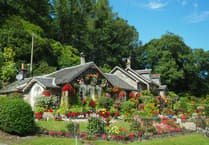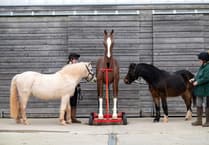THE South West hosted its first ever Invasive Species forum at Roadford Lake recently to highlight the damage Invasive Non Native Species (INNS) can have on the environment.
Around 100 people from a range of organisations attended the forum. The event was hosted by South West Water in partnership with the GB Non Native Species Secretariat, the Environment Agency, and Devon and Cornwall Knotweed Forums, who have now expanded as a result of the event to form Invasive Species Forums for the two counties.
INNS include terrestrial, freshwater and marine plants and animals. Organisms such as Japanese knotweed, Himalayan balsam, and zebra mussels can cause wide ranging damage, from increasing erosion and sedimentation to escalating flood risks and reducing property prices. They can reproduce quickly, displacing existing habitats of plants and animals and creating their own monocultures, which can prove difficult and costly to remove.
It is estimated that invasive non native species cost Britain at least £1.7-billion per year. Much of this cost is borne by the agriculture and horticulture sector, but many other sectors, including utilities like water companies are also affected. Japanese knotweed alone is estimated to cost the British economy around £166-million per year.
Tim Bird, natural environment advisor (invasive and injurious plants) from Cornwall Japanese Knotweed Forum, said: ‘This forum is an opportunity for invasive species experts to share best practice and knowledge, on how to best combat the negative impact, invasive species are having on the environment, economy, and society.’
Ecologist and environmental planner for South West Water Kate Hills said: ‘A key aim of the forum is to increase awareness and help people recognise INNS and encourage them to report them so that we can control them and prevent problems from developing. This is a huge issue that requires efficient partnership working if we are to tackle it effectively.’
For more information on INNS, visit www.nonnativespecies.org



